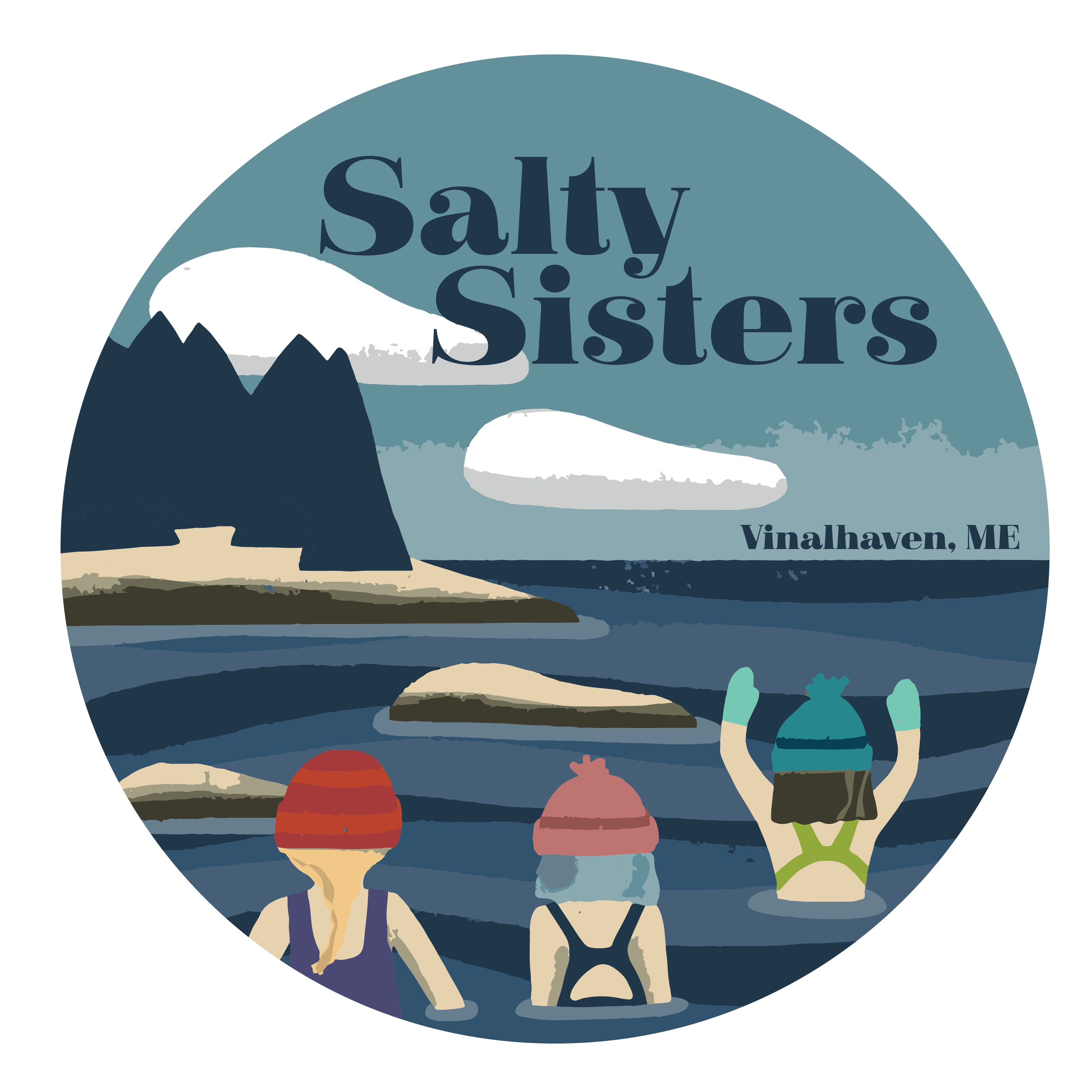Salty Sisters
Cold Water Dipping Group
Welcome to cold water immersion, for me (Alison) this has been an all-around amazing experience. I feel energized, invigorated and scrubbed clean on the inside. And surprisingly I really look forward to it and miss it on those days that we don’t get to go.
I wanted to share some of the safety notes and tips that I’ve gleaned over the past months.
First and foremost: Safety first!
Always always always do this with another person whether they are in the water with you or whether they’re on the shore -safety first!
Listen to your body, this is not a contest of endurance on any level, go in slowly let your body acclimate and remember to keep breathing. Think of this as “it’s just another sensation” and let that knowledge wash through you - don’t push your body. This water is cold I think right now (October 2025) it’s around 55’F
Also, this is not generally a swimming experience. This is cold water immersion and in the coldest months of the year we try not to stay in longer than fiveish minutes. Here’s some good info
https://www.soeberginstitute.com/
Here’s another link
https://www.outdoorswimmingsociety.com
With Maine water temperatures, it is a requirement to have some protection on your feet and your hands. The preference is seven mill neoprene booties and gloves. If you don’t have the booties - wool socks and water shoes seem to be working for some people as do wool mittens for your hands.
While we aren’t, as a rule, putting our hands in the water, we have discovered that having the gloves or wool mittens on certainly helps keep your body temp warmer
Some helpful tips:
Arrive warm and dress in layers that are easy to get in and out of. Clothes that are easy to put back on think elastic waist bands, no buttons, no zippers, etc.. Lots of us have started to wear skirts (thanks Heather), which also allow for us to easily change out of our bathing suits (which is a necessary practice). Wool hats and scarves can stay on in the water and help keep your body temperature warmer–
Bring 2 towels, one to stand on and one to dry off with
Our what’s app group is the place were we coordinate our dips. If you would like to be added to it, please get in touch with me at alisonthibault@gmail.com
And most importantly come hang out
with some amazing women!
Here are a few links
Huberman Lab podcast with Dr. Soberg
New Yorker Short Film Swimming Through
Beautiful Films at Waterbear
Please send new links/info my way and I will add to this page. Thank you, Alison
Cold Water Safety Statement
courtesy of Wicked Nippy DippahsWater transfers heat away from your body 4x faster than air does – meaning 50°F water feels much colder than 50°F air.
According to the National Weather Service, any water below 70°F is considered cold water.
Cold water can cause hypothermia, the colder the water, the quicker is affects you.
Everyone is different - each day is different - listen to the moment – it usually does take time to acclimate and outside circumstances (weather, WIND CHILL, time of day, AIR TEMP, what you ate, drank, etc.) can impact a lot.
Some days it will simply be unsafe to swim (e.g., instant frostbite for wet skin in below 0°F wind chill).
Be aware that there is this concept of “after drop” – after you get out of the water your body continues cooling – chilled surface blood returns to your core and in return, chills you – this can cause shivering. Ie. the cooling doesn’t stop when you get out of the water.
The most important part in colder weather or prolonged cold water exposure is getting the wet bathing suit off, patting your skin dry, and bundling up in warm clothes. Often, warm beverages help warm the body from the inside out the fastest. Exercise helps generate heat as well (jumping jacks, etc.)
There is no lifeguard on duty and we are all responsible for ourselves.
Know your limitations and listen to your body whether you’re staying in for 10 seconds or a few minutes.

